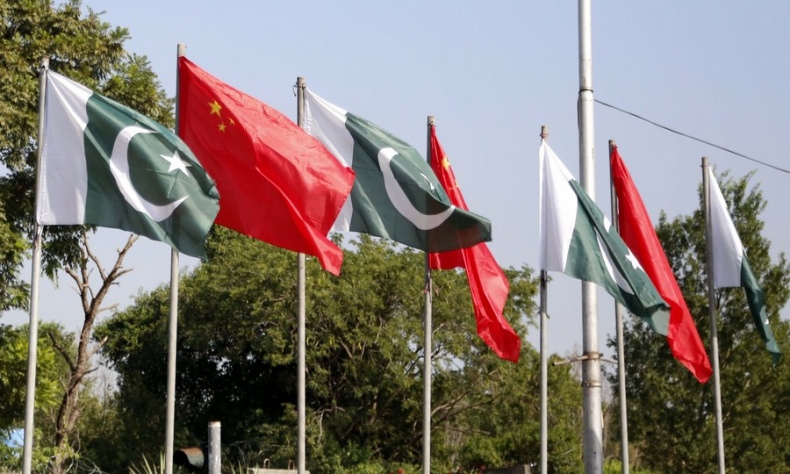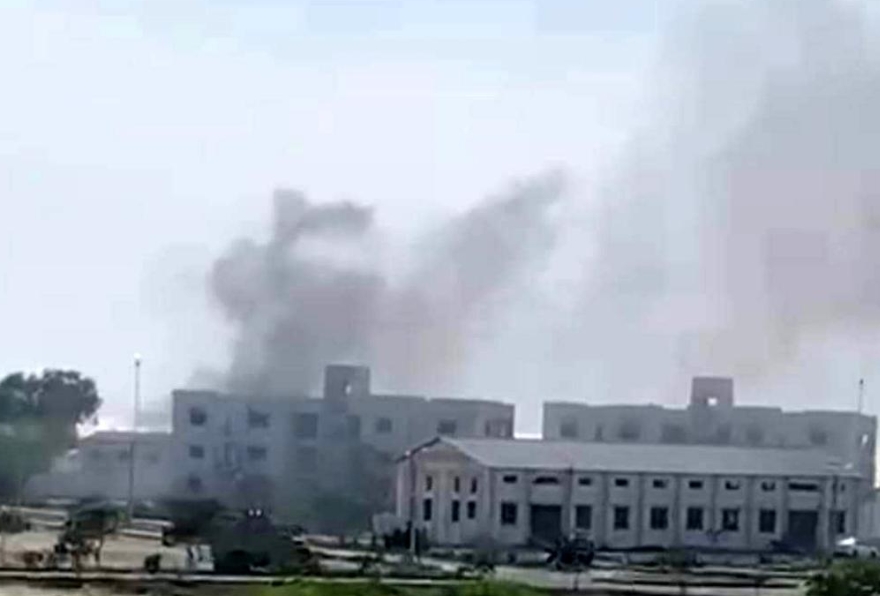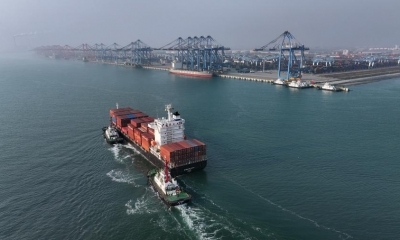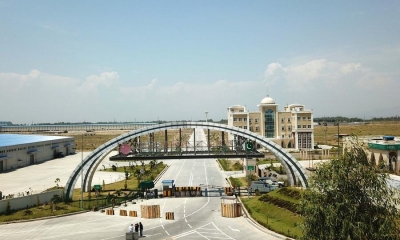How Will Global Security Initiative Help Pakistan Counter Terrorism

China’s Global Security Initiative offers a holistic approach to addressing the complex security challenges facing the world today.
As China is helping Pakistan to fix its economic crunch, it has a perfect cure to fix Pakistan’s security issues under the framework of the Global Security Initiative (GSI).
Over the last few months, terror attacks have been taking heavy toll on the security landscape of various parts of Pakistan, especially those areas where Chinese nationals have been working on projects either related to China-Pakistan Economic Corridor (CPEC) or not.
In Pakistan, the terrorism issue is very old fuelled by profuse geo-strategic, geo-political and geo-economic conditions. A slew of terrorist networks mostly sponsored by TTP, BLA or India have been uprooted through many military-led operations but they rear their ugly heads soon. Hideous resurgence highlights deficiencies in counterterrorism strategies that can be tinkered through close collaboration with Chinese anti-terrorism measures putting in place the GSI.
The Global Security Initiative was proposed by Chinese President Xi Jinping on April 21, 2022. It identifies six commitments including common, comprehensive, cooperative, and sustainable security, respect for sovereignty and territorial integrity of all countries, abiding by the purposes and principles of the UN Charter, taking the legitimate security concerns of all countries seriously, peacefully resolving disputes between countries through dialogue, and maintaining security in both traditional and non-traditional fields.
By rejecting confrontations among different groups, it stresses the connection between local security and global security. A single country’s security is closely related to the region’s security and security issues are also closely related to other issues. No country can solve major security issues alone.
The recent terror attacks have a peculiar pattern in Pakistan. Consecutively, Chinese businesses and nationals have been hit by terror incidents. During the 10 days between March 16 and March 26, Pakistan witnessed five different attacks, three in its northwestern Khyber Pakhtunkhwa province and two in its southwestern Balochistan province.

During the Dasu bomb blast, six people including a woman among five Chinese engineers were killed in the Besham city of Shangla, Kohistan district, province of KPK Pakistan. The last three attacks, coming so quickly in succession, appeared to target Chinese interests in Pakistan. First, terrorists attacked Pakistan’s Gwadar port in Balochistan, which was built with Chinese help. Then, an armed group attacked one of Pakistan’s largest naval bases, also in Balochistan, citing Chinese investment in the region as their motivation. And finally, fighters targeted Chinese engineers working on a Chinese-funded hydro-power project in the country’s north, near Besham city.
The recent series terrorist attacks have prompted concerns within Pakistan’s security establishment, which believes that attacks on the Chinese in Pakistan is part of a “larger plan” to hurt the economic interests of the country, as well as sabotage ties between Pakistan and China.
On the heel of grim incident, Chinese investigators have arrived in Pakistan to join a probe into the suicide attack in Bisham. Chinese foreign ministry spokesperson Lin Jian said China’s inter-agency working group carried out comprehensive emergency response work with the Chinese Embassy in Pakistan and the relevant enterprises.
He said the head of the working group, Director-General of the Department of External Security Affairs of the Foreign Ministry Bai Tian met with Pakistani Foreign Minister Ishaq Dar, Foreign Secretary Syrus Qazi, the Minister for Interior Mohsin Naqvi, and other officials. Director Bai Tian asked the Pakistani side to conduct speedy and thorough investigations into the attack, properly handle ensuing matters, step up security with concrete measures, completely eliminate security risks and do everything possible to ensure the utmost safety of Chinese personnel, institutions and projects in Pakistan, Lin Jian added.
“The Pakistani side said that investigations and efforts to handle the ensuing matters are fully underway and they are taking all possible steps to step up security for Chinese personnel, projects and institutions,” he further said.
The spokesperson said that the working group would also carry out related work during its stay in Pakistan. The government also reiterated its resolve to comprehensively combat terrorism by employing all resources available to the state and bring the perpetrators to justice swiftly.
In response to the Chinese government’s demand to promptly investigate the incident and take emergency actions against those involved, the government had also decided to form a joint investigation team to probe the attack.
A day ago, the Foreign Office had said there was no doubt that the attack was “orchestrated by the enemies of Pak-China friendship”. It had asserted that the incident would not impact the CPEC and other aspects of bilateral cooperation between China and Pakistan.

Following its commitments made in the GSI, China has reaffirmed its assistance to Pakistan in tackling its ongoing security challenges, particularly terrorism. The Chinese Ministry of National Defense has expressed a keen interest in collaborating with Pakistan to strengthen its capacity to counter various security threats. Colonel Wu Qian, the ministry’s spokesperson, emphasized the enduring bond between China and Pakistan, underlining their mutual dedication to fostering regional stability.
Colonel Wu highlighted the extensive cooperation between the two countries’ militaries, ranging from joint exercises to training exchanges and technological partnerships. He reiterated China’s unwavering readiness to assist Pakistan in addressing security concerns, with a specific focus on combatting terrorism. This pledge follows the recent participation of a People’s Liberation Army (PLA) contingent in Pakistan’s military parade and latest deadly attack on Chinese engineers in the country.
In response to recent terrorist attacks, representatives from organizations like the Shanghai Cooperation Organization (SCO) have strongly condemned such crimes and emphasized the need for united action against terrorism, separatism, and extremism. Against this backdrop, the relevant experts have highlighted the critical importance of the GSI in addressing ongoing security threats and establishing permanent security measures.
Former special envoy for the CPEC, Zafar Uddin Mahmood, emphasizes that recent terrorist incidents underscore the necessity for heightened vigilance and long-term planning to ensure permanent security. He underscores the potential of China’s GSI to provide a pathway for common solutions and research in combating terrorism effectively.
China’s contribution through the GSI reflects its commitment to global peace and security. By offering solutions to international security challenges and advocating for conflict resolution through negotiations and consultations, China demonstrates its responsibility as a major global player.
Looking ahead, experts suggest that organizations like the SCO can play a pivotal role in advancing the GSI’s objectives. By organizing joint drills, nurturing talents in security fields, and expanding their mandate, organizations like the SCO can significantly impact regional and global security dynamics, including those affecting Pakistan.
Moreover, the GSI aligns with broader initiatives focused on restoring livelihoods in fragile situations and preventing violations of international humanitarian law, as recognized by Gilles Carbonnier, vice president of the International Committee of the Red Cross (ICRC).
Moreover, the GSI emphasizes the need for international dialogue platforms such as the Beijing Xiangshan Forum and the Global Public Security Cooperation Forum. Pakistan can actively participate in these forums to exchange best practices, share intelligence, and enhance coordination in combatting organized crime and terrorism.
China’s Global Security Initiative offers a holistic approach to addressing the complex security challenges facing the world today. Pakistan can leverage this initiative to strengthen its security capabilities, foster regional cooperation, and promote peace and stability in the region. By embracing the principles of the GSI and actively engaging with international partners, Pakistan can overcome its terror threats and contribute to a safer and more secure world.
The article reflects the author’s opinions, and not necessarily the views of China Focus.
 Facebook
Facebook
 Twitter
Twitter
 Linkedin
Linkedin
 Google +
Google +







